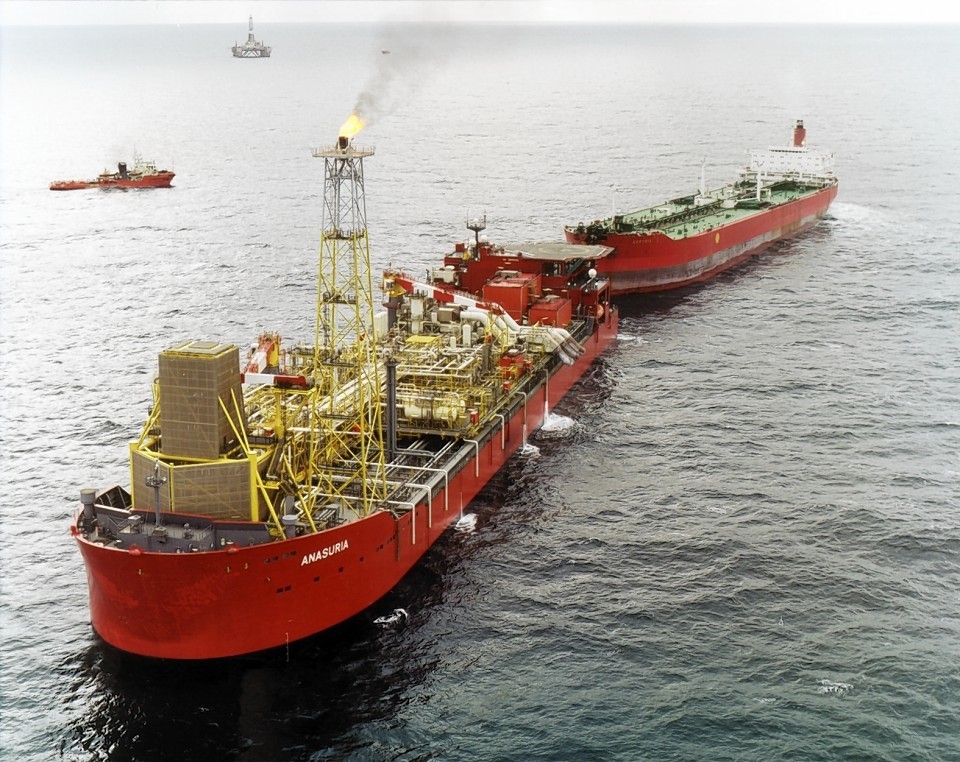Oil majors Shell and Exxonmobil have sold off a further chunk of the North Sea to a duo of Malaysia-based oil companies for close to £70million.
North Sea newcomers Hibiscus Petroleum and Ping Petroleum have agreed to acquire the Anasuria cluster in the Central North Sea in a deal worth £67.7million ($105million).
The deal will be backdated to January 1 2015 although its completion will be subject to UK regulator and Hibiscus shareholder approval.
The move comes after Shell, which operates its North Sea assets in a joint venture with Exxonmobil, announced in February last year it planned to sell “significant parts” of its UK operations including Anasuria, Nelson and Sean fields.
Last month, Shell and Exxon sold a 50% stake in Sean to another North Sea newcomer, Oranje-Nassau Energie (ONE).
Hibiscus was the first independent oil and gas company to list on the Malaysian stock exchange in 2011, after being founded in 2007.
It’s chairman, Zainul Rahim bin Mohd Zain, was formerly deputy chairman and executive director of Shell Malaysia
Ping Petroleum is a privately owned firm headquartered in the tax haven of Bermuda, with an office in Kuala Lumpur. It was founded by University of Texas at Austin petroleum engineering graduate Ning Zhang. He and his fellow directors, including chairman Roy Phillips, previously led Newfield Petroleum UK which sold its southern North Sea assets to Centrica in a £242million deal in 2007.
Both Hibiscus and Ping said the sale “brings two new entrants into the North Sea” and reflects the support of the UK Government to encourage “smaller independents to invest and revive the North Sea basin.”
In a statement Hibiscus added that the fields offer a “number of incremental development and exploration opportunities” that will generate “significant” value in the medium term.
The Anasuria assets are located 110miles east of Aberdeen in and consists of a 100% interest in the FPSO, Teal, Teal South and Guillemot A fields as well as a 38.65% interest in the Cook field, which is operated by Ithaca Energy.
Ken Pereira, managing director of Hibiscus, said: “This acquisition will complete our company’s strategy of acquiring a balanced portfolio of assets which includes exploration, development and producing assets within five years of listing our company.
“We will be able to cut our teeth as operator in conjunction with Ping in one of the world’s foremost oil and gas production basins.
“The Anasuria cluster has development potential for a company of the size of Hibiscus and provides us with an excellent foundation upon which we can build a significant North Sea presence.”
A Shell spokeswoman said: “Shell can confirm that it has signed a sales and purchase agreement with Ping Petroleum and Hibiscus Petroleum, for the sale of its interests in the Anasuria Cluster.
“This deal fits with Shell’s strategy to deliver strong shareholder value across our assets. The Anasuria cluster has entered a phase where it offers greater value to other companies than it does for Shell.”
The deal expected to complete in by the end of the year.
